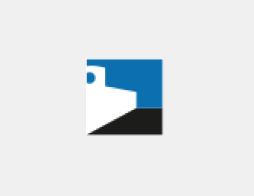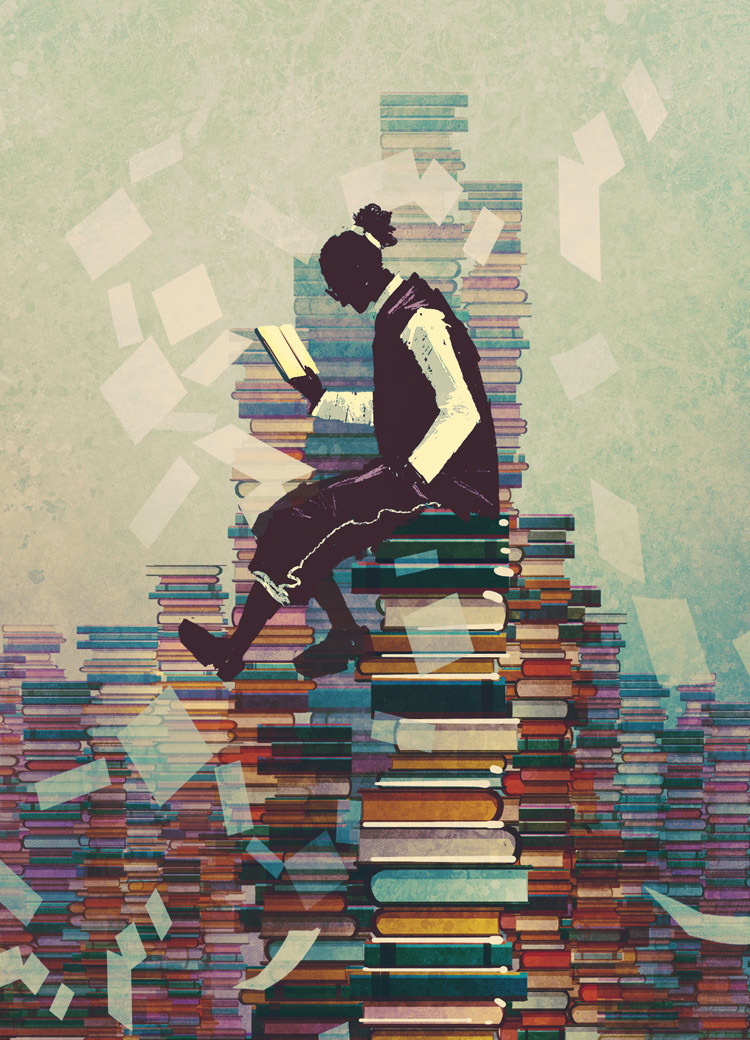Seeing yourself & other perspectives in reading
Note from Teen Librarian Angie Reed
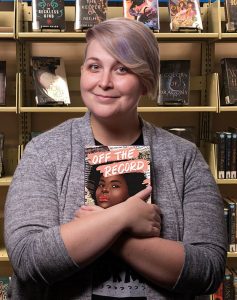
Angie Reed
Reading Young Adult literature is my favorite thing to do. I know there are a lot of adults out there who also enjoy reading YA books and have found a path to connect to youth through this shared love.
We reached out to Washburn Rural High School's Media Specialist, Victoria Finney, who presented at the 2022 Young Adult Library Services Association symposium in Baltimore, Maryland. Below she shares her passion for connecting with fellow educators and librarians to discuss the power of YA literature. Finney outlines how she created a book club with her peers, the books they discussed and how that benefited them. Read on for her take on seeing yourself and other perspectives in reading.
Feel free to reach out to your library (that's us!) ask@tscpl.org for title suggestions or a place to meet if you are interested in following in Victoria's footsteps and creating a YA book club to discuss the powerful works being released for our youth in this era!
Guest author Victoria Finney, Library Media Specialist, Washburn Rural High School
Seeing yourself in reading
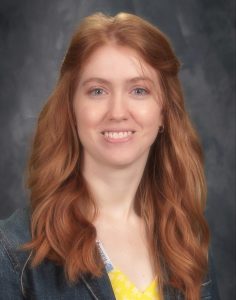
Victoria Finney
When was the last time you saw yourself in a book? Really saw yourself? Do you remember how amazing that felt? Not only did the character act like you and share your interests, but truly looked like you?
It wasn't until I read Between You, Me, and the Honeybees by Amelia Diane Coombs (2021) that I saw myself in a book. The main character, Josie, is a recent high school graduate spending the summer working with her mom on their apiary. I may not be a recent high school graduate, but I had just started my own bee hive. Bonus points: Josie has red hair, and some of the same silly quirks I see in myself. All those elements made reading Between You, Me, and the Honeybees so much more enjoyable.
Growing as a reader
Each year, we grow and change as readers. The books we see ourselves in now may not be the same titles we need five or 10 years from now. If reading a book about a red haired beekeeper was so enjoyable for me as an adult, imagine what effect that could have on teenagers who find themselves in a book? Better yet, what effect would it have on a group of educators? As much as we love the classics, the stories are not a portrayal of life as a 21st century teen. If we could get educators to read current, young adult (YA) literature, would they see their students, their diverse lives and experiences in a new light?
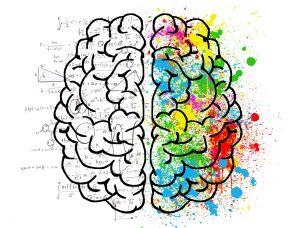 Librarians are passionate about ensuring we get books representative of our own diverse populations, but also exposing students to different perspectives and identities. This helps build empathy. My co-librarian and I have built a fairly diverse collection. However, during the past few years we've struggled to get those books into student hands. Between COVID blocking student access to the physical library, changing school culture that doesn't promote a love of reading, and some of the more toxic anti-library and anti-public education air floating around, it feels like we're fighting an uphill battle.
Librarians are passionate about ensuring we get books representative of our own diverse populations, but also exposing students to different perspectives and identities. This helps build empathy. My co-librarian and I have built a fairly diverse collection. However, during the past few years we've struggled to get those books into student hands. Between COVID blocking student access to the physical library, changing school culture that doesn't promote a love of reading, and some of the more toxic anti-library and anti-public education air floating around, it feels like we're fighting an uphill battle.
Motivating school reading
My first year as a public school librarian, I started the 1,000,000 page challenge. The goal was to get students and all school staff to work together to log 1,000,000 pages of reading.
 This was wildly successful for two reasons. First, I was very visible in the school delivering reading prizes. Students and staff won a small prize for 1,000, 5,000 and 10,000 pages of reading. Second, staff were involved! Students saw their teachers reading and winning prizes. That year we read 721,277 pages and circulation increased. It was amazing!
This was wildly successful for two reasons. First, I was very visible in the school delivering reading prizes. Students and staff won a small prize for 1,000, 5,000 and 10,000 pages of reading. Second, staff were involved! Students saw their teachers reading and winning prizes. That year we read 721,277 pages and circulation increased. It was amazing!
The following years we tried a variety of different reading challenges to promote reading. Between COVID (as mentioned above) and all the other woes of the world, we could not match the success of the 1,000,000 page challenge. I needed to find a way to get more staff reading (hopefully YA), bringing their students into the library, and ultimately bringing back a reading culture in our school.
YA Book Club first attempt
In 2019 I created the Staff Young Adult Book Club. The rules were simple:
- be a middle or high school staff member
- read a YA book!
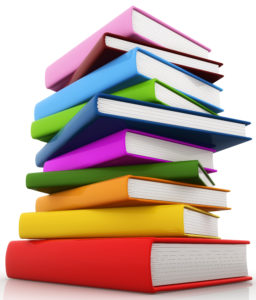 For two years, each quarter we met virtually or in-person. We'd share our most recent YA reads, bring your own book style. Unfortunately, I wasn't reaching any of the staff I needed to reach. Each year the same 10 staff signed up, and the same three to five staff actively participated: the librarians, a reading teacher and an English teacher.
For two years, each quarter we met virtually or in-person. We'd share our most recent YA reads, bring your own book style. Unfortunately, I wasn't reaching any of the staff I needed to reach. Each year the same 10 staff signed up, and the same three to five staff actively participated: the librarians, a reading teacher and an English teacher.
At the end of the 2020-2021 school year I was frustrated and was about to give up. However, during the summer I read two books: Leading from the Library by Miller and Bass (2019) and Reading For Action by Boyd and Darragh (2019). These titles explored ways librarians could lead their school while also engaging students in social justice discussions.
One quote from Miller and Bass stuck out especially: "it's not about how many students you can reach by teaching an individual lesson, it's about the influence you have on your school community and how many students you can reach by reaching your teachers."
Social Justice Book Club
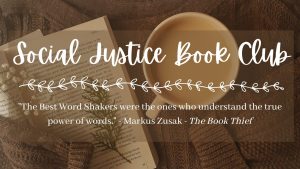 During the summer of 2021 I pondered a few things. My particular building is not Title 1, and not the most culturally and racially diverse. However, elementary buildings feeding into our high school are, which means those students are coming to us soon. Additionally, we have a large socioeconomic diversity between our students, and active Black Student Union and Gay Straight Alliance organizations. I wanted to support them, while also getting more staff involved in my young adult book club. The following August I approached my principal about a Staff YA Social Justice Book Club.
During the summer of 2021 I pondered a few things. My particular building is not Title 1, and not the most culturally and racially diverse. However, elementary buildings feeding into our high school are, which means those students are coming to us soon. Additionally, we have a large socioeconomic diversity between our students, and active Black Student Union and Gay Straight Alliance organizations. I wanted to support them, while also getting more staff involved in my young adult book club. The following August I approached my principal about a Staff YA Social Justice Book Club.
The structure of the club was similar to the original, but staff were asked to read a YA book in different quarterly themes. For an added incentive, we offered the book club as a professional development opportunity. They could earn points by evaluating their books and discussing their title(s) with the group. My goal was to get more staff reading YA books and expose them to a variety of demographics and perspectives representative of our students.
Book themes
Quarter 2 - Poverty & Social Disparity
Quarter 3 - Disability & Mental Health
Quarter 4 - Global Disparity & Immigration
Quarter 2 - Indigenous Peoples
Quarter 3 - Environmental Disparity
Quarter 4 - Fantasies ft. Diverse Characters
| 2021-2022 Themes | 2022-2023 Themes |
| Quarter 1 - Racial & LGBTQ+ Diversity | Quarter 1 - Banned Books |
Book club progress
In its first year, 25 middle and high school staff signed up, while 11-13 actively participated each quarter. Technically participation did double from the standard book club, and we did reach a more diverse group of educators. However, we were still struggling to get the staff who need to read diverse YA literature reading it. I surveyed participants and they said they enjoyed the club and want it to continue.
How do we get more staff involved? How can we get more staff reading diverse YA novels instead of staring down their noses at such "unsophisticated" literature?
Social media limits your world view
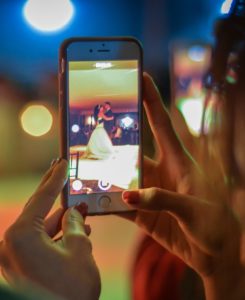 Recently I presented my digital citizenship lesson in one of the computer applications classes. While social media algorithms are amazing at recommending content curated for you, it also limits your world view. After watching The Social Dilemma (2020), we asked the classes what they could do to "fight back" without giving up their phones entirely. I suggested reading!
Recently I presented my digital citizenship lesson in one of the computer applications classes. While social media algorithms are amazing at recommending content curated for you, it also limits your world view. After watching The Social Dilemma (2020), we asked the classes what they could do to "fight back" without giving up their phones entirely. I suggested reading!
Reading, especially reading young adult literature, opens doors to a variety of perspectives, experiences and realities that differ from our own. As adults, specifically adults who work daily in the lives of young adults, not only do we need to promote diverse young adult literature to our students, but we must model reading of diverse young adult literature. Hopefully through this act, not only will we build back a culture of reading, but also a culture driven by empathy.







